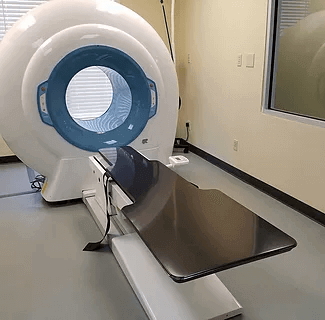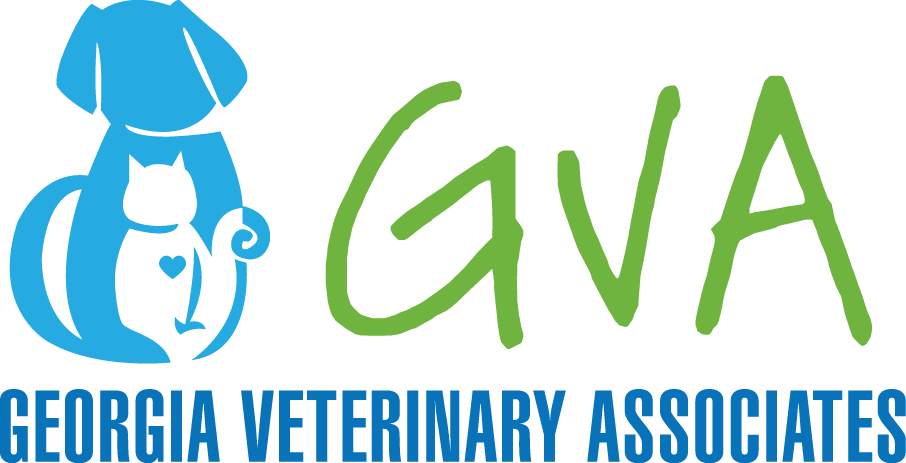
CT (Computed Tomography) Scans are available to all GVA clients through our Russell Ridge location in Lawrenceville. This advanced diagnostic imaging equipment is only available at a few hospitals in the entire state. Our NewTom 5G Veterinary Cone Beam Scanner takes thousands of high quality images in only 18 seconds. Scans include 3D reconstructions for in depth analysis, and are always interpreted by a board certified radiologist.
CT Scans can be useful for diagnosis of a wide variety of conditions, including:
-
Lung disease
-
Nasal and Sinus disease
-
Ear canal disorders
-
Dental and Jaw disease
-
Evaluation of abdominal organs
-
Orthopedic conditions
-
Spine and spinal cord disorders with the aid of contrast dye (myelography)
-
Soft tissue tumors
CT scans for pets, also known as "cat scans," are computer enhanced x-ray procedures most often used to evaluate complex parts of the body, such as the head, chest, some joints and various internal organs. CT scans show different levels of tissue density, and produce more detailed images than x-rays. Unlike MRI's, CT scans for dogs and cats do not use magnetic field waves so they cannot compare changes in fluid levels due to inflammation or bleeding. Therefore, CT scans for pets are used in situations where an MRI is considered unnecessary but a traditional x-ray is inconclusive or insufficient.
CT scans for pets usually proceed as follows:
- Pet must be sedated for this procedure because they cannot be restrained by humans and must remain still during the procedure
- The pet is placed on a motorized bed inside of a CT scanner, a machine that takes a series of x-rays from various angles*
- When one series, or scan, is completed, the bed moves forward, and another scan is taken
- A computer uses these scans to create cross-sectional images of the body part under investigation, and then display the images on a monitor (An x-ray dye may be injected intravenously to make it easier to see abnormalities)
- By sequentially scanning an entire body area, an organ or other structure can be imaged without invasively penetrating the body, or disrupting neighboring structures
Just like MRI equipment, CT scan equipment is very expensive, large and requires trained technicians to operate. However, and in our mission to make sure all diagnostic imaging tools are available for your beloved animal companion to benefit from, we provide CT scans at our Lawrenceville location, Russell Ridge Animal Hospital.
